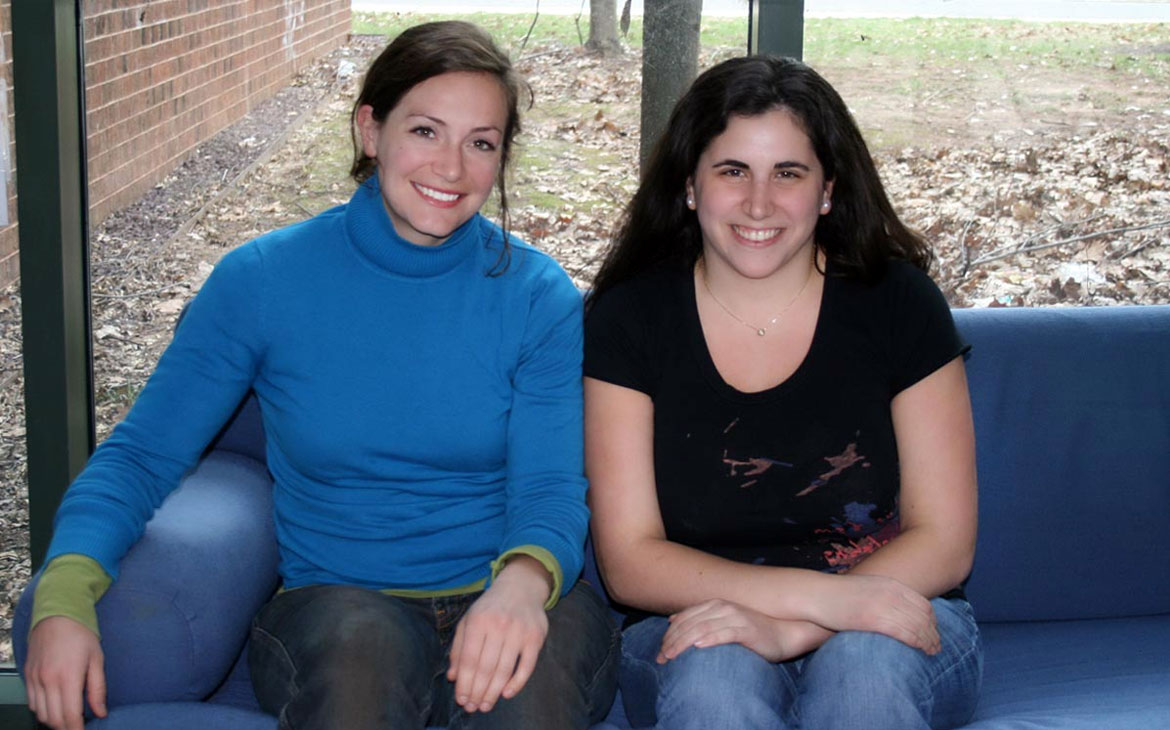Our department is very proud of our two graduate students Anna Hermes and Tali Babila. Both women were awarded 2011 NSF EAPSI fellowships.
Each summer, NSF provides educational opportunities for Graduate Students as part of the East Asia and Pacific Summer Institutes (EAPSI). These very competitive fellowships provide U.S. graduate students in science to travel to Australia, China, Japan, Korea, New Zealand, Singapore or Taiwan to gain first-hand research experiences. The primary goals of EAPSI are to introduce students to East Asia and Pacific science and engineering in the context of a research setting, and to help students initiate scientific relationships that will better enable future collaboration with foreign counterparts. The students travel to a host institution to work on an original project that they proposed in their fellowship application.
Anna Hermes will be traveling to New Zealand to work at the University of Auckland investigating sources of organic carbon and associated microbial dynamics in the Matapouri Estuary, a small estuary in the Hauraki Gulf. Because estuaries link land and sea, multiple sources of organic carbon from land, sea, and marshes, are mixed and “filtered” through biogeochemical processes that partition these different types of organic carbon. Anna will investigate how microbial community dynamics drive the partitioning of organic carbon across estuarine transition zones resulting in differential fates such as sedimentary burial, microbial remineralization back to CO2, or export to the marine carbon cycle.
Anna will be working in the laboratory of Dr. Gillian Lewis at the University of Auckland, an environmental microbial ecologist with expertise in identifying bacterial community diversity and functional diversity in stream biofilms. Using geochemical and microbial approaches in combination will lead to a deeper understanding of what controls differential bioreactivities of sources of organic carbon through estuaries.
Tali Babila will be traveling to Taiwan to work with Dr. Chen-Feng You at National Cheng Kung University in Tainan. She will be working on cores from the International Ocean Drilling Program (IODP) cores taken from New Jersey. The sections she will be working on are of the Paleocene-Eocene Thermal Maximum (PETM) occurring about 55 million years ago. The PETM was an interval of geologically rapid global warming which can be used as a model for current global warming. While in Taiwan she will be analyzing boron isotopes in planktonic foraminifera to reconstruct surface seawater pH at the PETM. The goal of the project is to use the reconstructed pH to estimate past atmospheric carbon dioxide concentrations. This, in addition to sea surface temperature can be used to assess their phase relationship at onset of the PETM. This work is in collaboration with her advisors in Earth and Planetary Sciences at Rutgers University.

